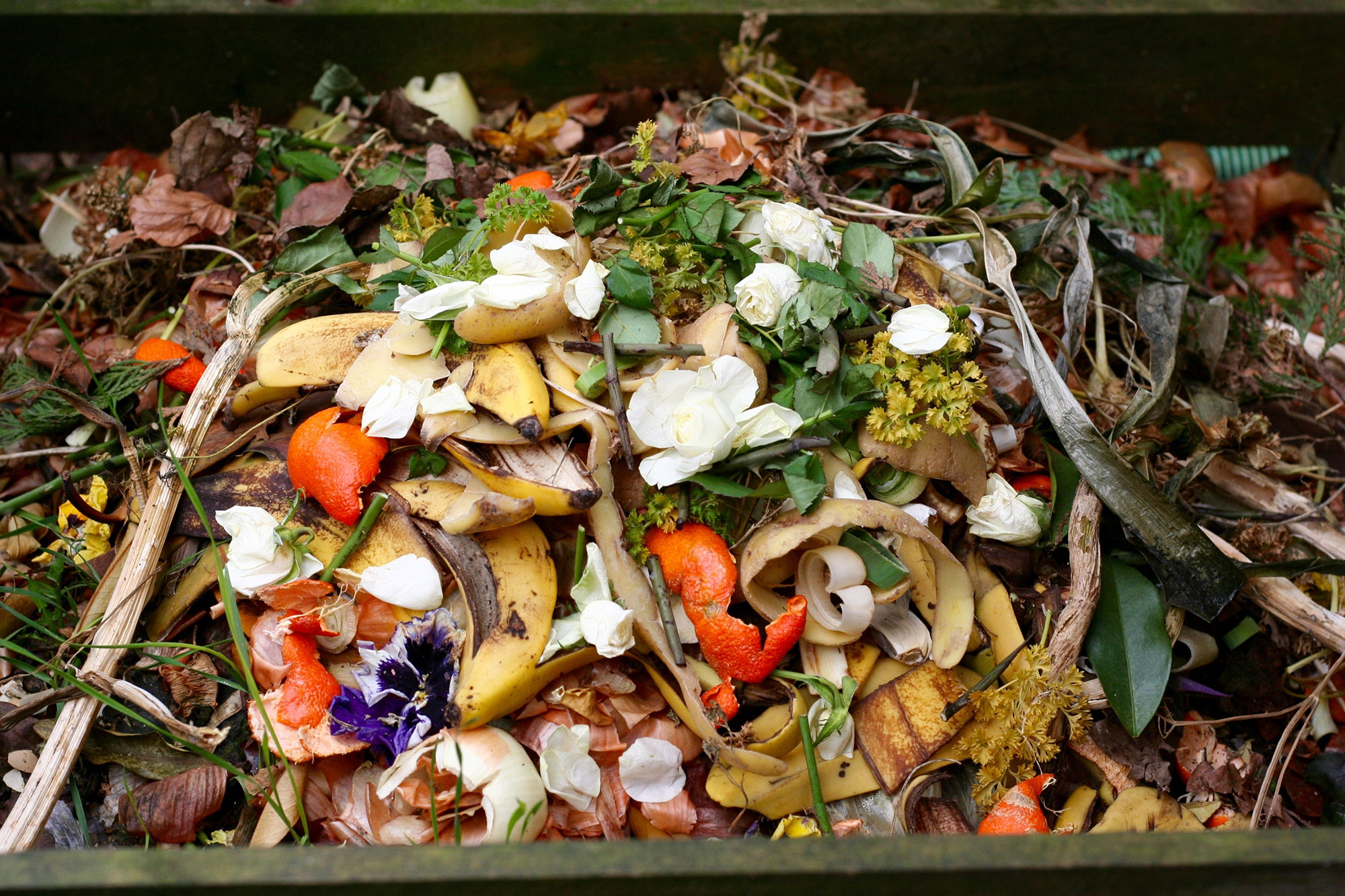Tackling Historical Inequities in Urban Organic Waste and Composting.

Tackling Historical Inequities in Urban Organic Waste and Composting
A recent commentary in Environmental Health Perspectives evaluates the equity and safety of US organic waste cycles in urban agriculture, and provides recommendations to promote safer compost production from urban organic waste practices.
Urban composting is one of the most responsible ways cities can recycle food and yard waste, as it reduces waste in landfills, builds healthy soil, and replaces harmful chemical fertilizers. It may also support waste stewardship and food justice by increasing access to healthy foods and green spaces.
But compost produced from urban food and yard waste may also contain contaminants that are harmful to humans and the environment.
Cities must protect compost safety through policy and municipal programming improvements, according to a recent commentary led by School of Public Health researchers.
Published in the journal Environmental Health Perspectives, the commentary presents a case study on waste-to-compost activities and legislation in four US cities and provides recommendations on how cities can promote safe and equitable organic composting.
“Coordination of urban waste stewardship and food production can build food security while also mitigating and adapting to climate change, though current waste and food systems are often politically, financially, and logistically siloed,” write Samantha Hall, a PhD student studying environmental health; Vidya Tikku, vice president of Urban Outdoors for The Trustees of Reservations; and Wendy Heiger-Bernays, clinical professor of environmental health.
The researchers conducted the case study in response to concerns from Boston community gardeners about the quality of compost from municipal organic waste. Compost from waste in densely populated urban areas presents distinct hazards from compost in rural settings, including higher amounts of pesticides from parks and lead dust from older buildings. This compost may also contain PFAS (per- and polyfluorinated substances), a class of chemicals found in hundreds of household products and drinking water that pose serious health concerns and are under new consideration for stricter federal regulation. While several states and cities have residential or commercial organic waste ban or food scrap collection requirements, no federal guidelines exist on urban compost development or regulation.
“Collecting organic waste and processing it into safer compost accessible to urban growers is an important way that municipalities can take accountability for our waste cycles,” says Hall. “This waste-to-resource framework can help prevent environmental injustices—like dumping of contaminated wastes on low-resource communities—while also mitigating further greenhouse gas emissions through landfill diversion.”
For the case study, Hall, Tikku, and Heiger-Bernays reviewed online sources and conducted interviews with community gardeners and growers in Boston, Seattle, San Francisco, and New York City from June-July 2022 to examine how the cities sourced, collected, processed, tested, and delivered urban organic waste as compost for urban agriculture. They observed differences in city and state-level waste and composting standards—for example, only San Francisco and Seattle have mandatory bans against landfilling organic waste for both residents and commercial businesses. Notably, Massachusetts is the only state among those observed that does not have a state standard for compost feedstock or content.
This lack of cohesive guidance and regulation around waste-to-compost practices may exacerbate racial inequities in access to urban agricultural land and safe municipal compost. Inequities observed in the current waste and food systems are partially borne from redlining and other historically marginalizing practices that led to loss of land and food inequality among communities of color, the authors write, arguing that “justice-oriented policy planning efforts must incorporate proper waste disposal.”
Creating equitable policies that integrate both food and waste justice requires a multisector approach among urban growers, community organizations, and government entities, the authors propose. They recommend that cities should embrace multilingual and multimedia communication and education about composting to community farmers and growers, and encourage policymakers to engage with volunteer garden coordinators and community organizers who can advocate for gardeners’ needs. They also call for organic waste bans and proper pickup of separated waste, as well as regulations of compost feedstock and testing of finished compost, and increased access to compost for communities disproportionately burdened by food insecurity and the effects of climate change.
“Organic waste is waste—there is no way around this. However, knowledge is power,” says Heiger-Bernays. “With proper tracking, testing, evaluation and communication of findings, gardeners and growers can use this knowledge to make decisions that will enable them to engage in the beneficial acts of growing and providing nutritious food for themselves and families.”
On the heels of this research, the authors will facilitate a dialogue about compost testing and accessibility in a workshop session at the 48th Annual Gardeners’ Gathering, a free urban gardening conference on March 16 at Northeastern University. For more information or to register for the conference, click here.